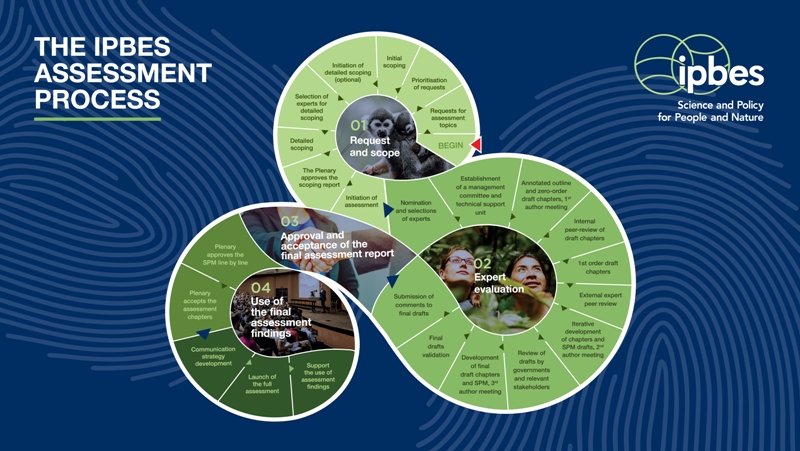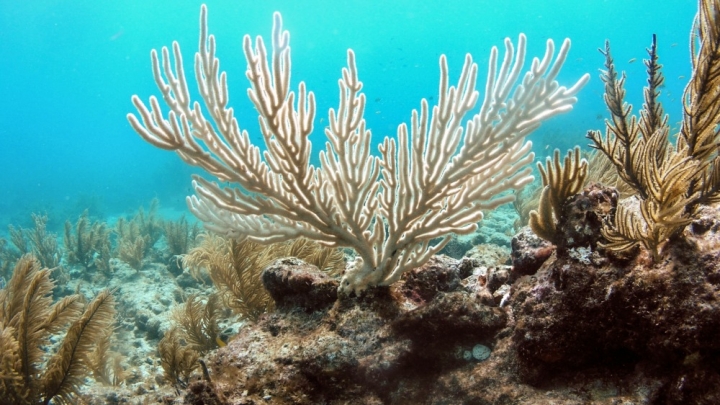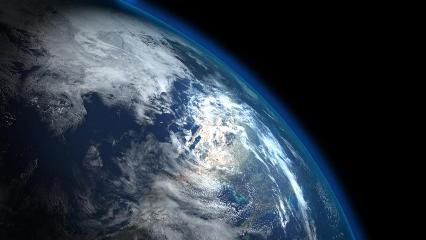File:IPBES-assessment stages-a.jpg
IPBES-assessment_stages-a.jpg (800 × 451 pixels, file size: 246 KB, MIME type: image/jpeg)
Biodiversity & Ecosystems
In the end, our society will be defined not only by what we create, but what we refuse to destroy. -- John C. Sawhill, Nature Conservancy
Snapshots of Biodiversity News
• https://www.ipbes.net/media/press-releases
Media Release: Global Biodiversity Assessment Nearing Completion
• https://www.ipbes.net/news/media-release-global-biodiversity-assessment-nearing-completion
To Be Presented in May 2019
“The IPBES Global Assessment is, in many ways, a successor to the landmark Millennium Ecosystem Assessment, published in 2005,” said Prof. Josef Settele, briefing journalists. “Since then, the world has agreed to a range of key commitments – such as the Aichi Biodiversity Targets, the Sustainable Development Goals and the Paris Agreement on climate change. The Global Assessment will help decision-makers, at every level, to assess progress, identify major gaps and consider a range of policy options to meet these key undertakings. Of particular importance in our research has been the exploration of ways to achieve climate change reduction, the conservation of biodiversity, and the global environment more broadly.”
What you’re seeing is what is left to see
The Biodiversity Trend is Downward, Big Time Downward
Fixating on the concept of extinction can lead scientists to overestimate the state of the planet’s health. Extinction obviously matters. If a species is completely wiped out, that’s an important and irreversible loss. But that flip from present to absent, extant to extinct, is just the endpoint of a long period of loss. Before a species disappears entirely, it first disappears locally. And each of those local extinctions—or extirpations—also matters.
“As much as 50 percent of the number of animal individuals that once shared Earth with us are already gone, as are billions of populations,” wildlife scientists report. “While the biosphere is undergoing mass species extinction, it is also being ravaged by a much more serious and rapid wave of population declines and extinctions.”
The Worst Disease Ever Recorded
A doomsday fungus known as Bd has condemned more species to extinction than any other pathogen...
• https://www.theatlantic.com/science/archive/2019/03/bd-frogs-apocalypse-disease/585862/
Coral Reefs Are Bleaching Too Frequently to Recover
Reefs rarely overheated and died in 1980. Now, they are bleaching too fast to recover.
From the Arctic to the Amazon, almost no part of the world has been left untouched by the human-caused warming of the Earth’s climate system. But one ecosystem seems to be disintegrating faster than almost anywhere else: coral reefs, the tropical rainforests of the undersea world.
A new study, published in the journal Science, quantifies this discipline-wide impression of a vast and fast-moving destruction. It brings together observations of 100 coral-reef sites around the world going back to 1980, and it finds that severe bleaching events are far more common now than they were 35 years ago...
• https://www.theatlantic.com/science/archive/2018/01/the-global-scourge-on-coral-reefs/549713/
The Intergovernmental Science-Policy Platform on Biodiversity & Ecosystem Services
- IPBES -- https://www.ipbes.net
○
File history
Click on a date/time to view the file as it appeared at that time.
| Date/Time | Thumbnail | Dimensions | User | Comment | |
|---|---|---|---|---|---|
| current | 20:59, 16 March 2019 |  | 800 × 451 (246 KB) | Siterunner (talk | contribs) |
You cannot overwrite this file.
File usage
The following 5 pages use this file:



